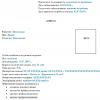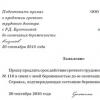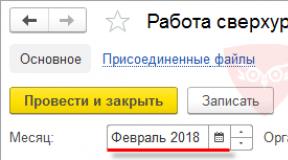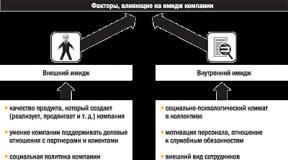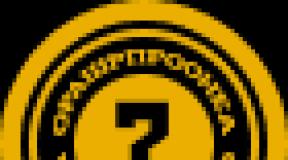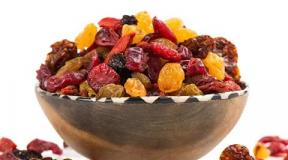What analogs does tanakan have? Tanakan, analogues on iHerb and unique gingko biloba Tanakan - principle of action, composition and dosage
Mom asked me to find analogues for Tanakan, which the doctor prescribed for her. I think it will be interesting to blog readers who do not know that on iHerb you can find analogues to many pharmacy products.
I already told my parents that iHerb has supplements that are cheaper and safer for your health. What can not be said about our funds. They are registered as drugs but the worst thing ... they may turn out to be fakes, have you already heard about the case in Helmholtz? Nobody is immune from this.
And this happened to my mother! The doctor advised her to drink expensive Tanakan on drink, but the second package turned out to be a fake! Mom bought "medicine" in different pharmacies, the first one immediately gave a lasting effect and relieved dizziness, and the second cut a month and zero reaction! I just lost time, and I don't know what I was drinking ...
Of course, I immediately read the instructions for the drug, which contains only one active herbal substance. This is a standardized gingko biloba extract containing 24% flavone glycoside and 6% terpene lactones!
The manufacturer writes about its originality. Needless to say, iHerb has a lot of gingko preparations, which contain just such an extract? And Tanakan is not a unique supplement at all, it is easy to find its counterparts at a more budgetary cost! And I found three great, high quality budget supplements!))

- deterioration of cerebral circulation
- decreased vision caused by vascular changes in old age
- memory impairment, concentration, depressed mood
- with tinnitus
- with hearing loss and dizziness caused by vascular changes
- deterioration of circulation, when feet and hands are constantly freezing
In my post on memory supplements, I wrote that ginkgo has the most positive studies! It improves mood, acts as an antioxidant, improves memory and brain function.

Tanakan analogues: ginkgo biloba extract
Tanakan contains a standardized extract of ginkgo biloba at a dosage of 40 mg. Ginkgo extract is also standardized to 24% flavonoid glycosides and 6% terpenes.
I have chosen the exact analogs with gingko extract:
Gingko extract Natural Factors, Ginkgo Biloba.60 mg extract per capsule with exactly the same 24/6 flavonoid formula. I ordered it to my mom already, several pieces.
Pure Gingko Wakunaga Kyolic Extract, Brain Focus contains 120 mg per capsule. An excellent extract, I already bought it for my dad and he drank to improve memory. It turns out about 6 times cheaper than Tanakan and also its full analogue.
Complex for memory Wakunaga Kyolic, Brain Memory contains 40 mg of gingko extract + eleutherococcus (adaptogen) + aged garlic extract, which protects brain cells from oxidative stress.
The site provides background information for informational purposes only. Diagnosis and treatment of diseases must be carried out under the supervision of a specialist. All drugs have contraindications. A specialist consultation is required!
Tanakan drug
 Tanakan is a herbal medicine - an extract of the leaves of the tree - biloba ginkgo biloba. This drug is produced by the French company "Ipsen Pharma", which uses only high quality raw materials grown on the ginkgo plantations in the United States. Tanakan is a drug containing not one substance, but a whole complex of them.
Tanakan is a herbal medicine - an extract of the leaves of the tree - biloba ginkgo biloba. This drug is produced by the French company "Ipsen Pharma", which uses only high quality raw materials grown on the ginkgo plantations in the United States. Tanakan is a drug containing not one substance, but a whole complex of them. The active components of Tanakan (flavonoid glycosides, bilobaids, terpene substances and ginoclides) are capable of exerting a number of positive effects on the state of the nervous and vascular systems. They affect metabolic processes in cells, improve blood microcirculation and its rheological properties. The drug has vasoregulatory properties, improving the tone of all vessels of the body, including the smallest vessels of the brain. Tanakan components have anti-edematous and antioxidant effects on the tissues of many organs.
Tanakan is successfully used in 60 countries of the world.
Forms of issue
Tanakan tablets - 15 biconvex tablets of red-brick color in a blister, 2 and 6 blisters in a carton box.Composition of 1 tablet:
- auxiliary substances - lactose monohydrate, microcrystalline cellulose, corn starch, silicon dioxide, magnesium stearate.
100 ml of solution contains:
- extract of leaves of ginkgo biloba - 40 mg;
- auxiliary substances - sodium saccharinate, orange and lemon flavoring, ethanol, purified water.
Tanakan instructions for use

Indications for use
- Cerebral circulation disorders of various origins (except for Alzheimer's disease and senile dementia);
- decreased visual acuity and visual impairment of vascular origin;
- disorders of coordination of movement, hearing impairment and dizziness due to vascular pathology;
- the consequences of craniocerebral trauma and stroke (impaired memory, attention, sleep);
- asthenic conditions caused by trauma or depression of a neurotic or psychogenic nature;
- Raynaud's syndrome or disease.
Contraindications
- Hypersensitivity to the components that make up the drug;
- age under 18;
- exacerbation of peptic ulcer duodenum and stomach;
- exacerbation of erosive gastritis;
- deficiency or intolerance of lactose, congenital galactosemia, (for tablets) malabsorption syndrome (malabsorption) of galactose or glucose;
- decreased blood clotting rates.
Side effects

- Allergic reactions - rash, redness, swelling, itching of the skin.
- From the side of the blood - a decrease in blood clotting indicators, a predisposition to bleeding with prolonged use.
- From the skin - eczema.
- From the digestive tract - abdominal pain, indigestion, diarrhea (diarrhea), vomiting, nausea.
- From the side of the central nervous system – headache, dizziness, tinnitus.
Tanakan treatment
How to take Tanakan?Tanakan tablets should be taken with meals, with 1/2 glass of water. The oral solution is also used with meals: 1 dose (1 ml) of the drug is diluted in water. The duration of admission is determined by the doctor and is usually about 1-3 months. The first signs of improvement are observed after a month of taking Tanakan.
The doctor must warn the patient that the tablet form of the drug contains lactose, therefore Tanakan tablets should not be taken by people with congenital galactosemia, lactase deficiency, glucose or galactose malabsorption syndrome. Such patients are advised to take Tanakan solution.
During the reception alcohol solution this drug should be used with caution when working with complex mechanisms, when practicing potentially dangerous species activities or in the management of transport.
Tanakan dosage
- Tablets - 1 tablet 3 times a day during meals with plenty of water.
- Solution - 1 dose (1 ml), 3 times a day during meals (pre-dissolve the dose in 1/2 glass of water).
Tanakan for children
Tanakan is contraindicated in children under 18 years of age, but in rare cases it can be prescribed to children even in infants with cerebral circulation pathology, increased intracranial pressure, autonomic dysfunctions nervous system and etc.The use of this drug in pediatrics is possible only for individual indications. Before the appointment of Tanakan, the child must undergo a comprehensive neurological examination, including neurosonography and Doppler ultrasound of the brain.
The drug should be taken only under constant medical supervision. Tanakan dosage and duration of its administration in pediatric practice is determined individually: depending on the severity of the disease and the age of the child.
Interaction of Tanakan with other drugs
Tanakan tablets can be used with any medications, however, it should not be combined with takingHello friends! Today we will talk about tanakan, whose analogues are very common everywhere.
Therefore, our main task will be to figure out whether analogs are really of this drug just as effective.
I would also like to tell you about its cost and how to use it for children.
Tanakan analogues
The main active ingredient of this remedy is the leaves of ginkgo biloba, better known as ginkgo biloba. The extract from this plant helps to improve cerebral and peripheral circulation.
It is worth saying that the demand for medicines of this type is growing, and, as a result, every year more and more analogues appear on the pharmaceutical market, which include:
- Ginos.
- Vitrum Memori.
- Gingium.
- Ginkoba.
- Ginkoum.
- Ginkgo biloba.
- Ginkging and many others.
However, one of the main analogs is still Bilobil. Currently, it is very popular, so it can be found in almost every pharmacy.
True, if we are talking about tanakan, the analogue of Bilobil has almost the same cost.
This is due to the fact that all medications containing ginkgo biloba extract are very expensive. Plus their production is very beneficial for pharmaceutical companies.
Food for thought ...
The main advantages of this type of medication is that they can influence the changes occurring in the blood circulation, inhibiting them.
Once again, I repeat that, like tanakan, analogues include ginkgo biloba extract, so they differ little from the product itself.
However, the form of release may be different. The most popular are pills and oral mixtures.
If we talk about pharmachologic effect, then it is based on:
- Activity of vasomotor reactions.
- Improving blood rheology.
- Strengthening cellular processes.
- Improving cerebral circulation by increasing the supply of oxygen and glucose.
Tanakan for children
Parents often have a question about its use in childhood, therefore, I decided to reveal this question a little.
If we consider the annotation, then we can conclude that the drug is absolutely safe, therefore it can be taken in childhood. True, few parents believe this.
In fact, this tool includes exclusively herbal ingredients. It is able to minimize disturbances of the vegetative - vascular system, as well as improve cerebral circulation.
It is because of this that doctors prescribe tanakan for children. However, with such use, the dosage must be strictly observed, which can only be established by a doctor - a neurologist for each individual case.
Important to remember!
In no case should you take the medicine yourself, relying on the advice and results of friends. Only a doctor is able to determine the dose that is suitable for the baby, as well as the number and duration of receptions.
Do not forget about the contraindications that exist for children. Contraindications include:
- lactose intolerance,
- hypersensitivity to the components of the drug,
- lactose deficiency and chronic diseases digestive system.
- Otherwise, it is safe and can be prescribed not only to infants, but also to newborn children.
How much is a tanakan
Now let's figure out how much it costs. As noted earlier, the price for it is very high, however, it is better not to save on it.
Sometimes patients are worried about even a slight decrease in intellectual abilities, memory impairment, which is a consequence of impaired blood circulation inside the brain. In such a situation, a specialist can recommend Tanakan.
Composition, release form, packaging
The release is carried out in the following forms:
- tablets. Ginkgo biloba (standardized extract) is used as an active ingredient. Additional components include cellulose, talc, cellulose, magnesium stearate, colloidal anhydrous silicon, corn starch;
- solution used for oral administration. Ginkgo biloba (standardized extract) is also used as an active ingredient. We indicate other ingredients: water (purified), lemon essence (soluble), ethanol, orange essence (soluble), sodium saccharin.
Oral solution is endowed with a characteristic odor, its color is brownish-orange. After dissolving with water, it becomes almost transparent. Contained in a bottle made of dark glass. A bottle + dosing pipette is placed inside the cardboard box. The volume of the bottle is 30 ml.
The tablets have a shell. They are produced in a blister strip packaging. Such packages are placed inside a cardboard box. Inside the pack can contain 30 pcs. (2 packs), 90 pcs. (6 packs).
Manufacturer
The tablets are produced in France ("Ipsen Pharma"). The solution was published by the Russian Moscow office (Ipsen Pharma).
Indications for use
Used in therapy:
- , which have a different genesis (, senile,), are manifested in the form of sleep disorders, attention, memory, decreased intellectual abilities;
- ringing or;
- ... This pathology can also occur as a complication after Raynaud's disease;
- vertigo of vestibular origin;
- neurosensory disorders, which usually appear as a result of diabetic retino- / polyneuropathy and are manifested in, hypoacusia,;
- asthenic conditions. In such conditions, patients have symptoms of general depletion of the body, which are the result of traumatic, neurotic, psychogenic processes.
Contraindications
Researchers have not identified.
Mechanism of action
- Influences metabolic processes within cells.
- Restores microcirculation.
- Increases brain activity.
- Increases the rheological properties of blood.
- Restores cerebral circulation.
The medication is endowed with a vasoregulatory effect. Its positive effect on the tone of the vascular system was noted.
The drug prevents platelets from sticking together, the formation of free radicals. Does not allow lipid peroxidation to occur. It can be used to provide a decongestant effect (central, peripheral).
Instructions for use
 In the form of tablets, they are consumed three times a day.
In the form of tablets, they are consumed three times a day.
In the form of a solution, use three times a day, 1 milliliter.
If the patient has an asthenic condition, you need to use 80 mg three times a day.
The course can last 1 - 3 months.
Side effects
Side effects can be observed from various body systems:
- nervous system (,);
- circulatory system(tendency to bleeding, decreased clotting);
- digestive system (
Description and annotation to one of the analogues of Tanakan:
Tanakan - medicinal product based on the Ginkgo plant. Most effective for dementia (dementia) and Alzheimer's disease. It is often used during post-stroke rehabilitation and to restore memory after amnesia (as part of a combination treatment). It rarely causes severe side effects.
Chemical composition
The active ingredient is an extract of Ginkgo biloba (Ginkgo biloba). Excipients: talc, colloidal silicon dioxide, corn starch, microcrystalline cellulose, lactose monohydrate, magnesium stearate.
Shell composition: hypromellose, macrogol 400, macrogol 6000, titanium dioxide, red iron dioxide. Depending on the manufacturer, the composition of the excipients may vary slightly.
Pharmacological properties
The mechanism of Tanakan's effectiveness is manifested in active "ginkgolides" by a number of pharmacological properties.
- Arterial circulation: normalization of cerebral circulation, reduction of hypertension caused by adrenaline, increase in coronary blood flow.
- Capillary circulation: strengthening the walls of blood vessels and stabilizing the work of the circulatory system.
- Venous circulation: normalization of central venous pressure, including the cardiovascular system.
- Cellular Exercise: Serves as an antioxidant by increasing the production of brain energy and stabilizes glucose levels in the brain.
Release form
Tanakan comes in the form of film-coated tablets and oral solution. The solution and tablets differ not only in composition, but also in the duration of the course. There are no cardinal differences in the regimen. Most often, it is the tablets that are prescribed, since in terms of their effectiveness they are significantly superior to the solution.
The composition of the excipients of the solution includes the following components: sodium saccharin, soluble lemon essence, ethanol 95%, purified water.
Indications
- Alzheimer's disease and dementia of various etiologies;
- Intermittent claudication;
- Vascular dementia;
- Hearing loss, tinnitus, dizziness, and poor coordination;
- Raynaud's disease;
- Memory disorder.
In some cases, Tanakan is prescribed for the combined treatment of brain cysts. The drugs are prescribed by the attending physician depending on the patient's tolerance to the components and general condition health.
Application methods
The dosage can vary depending on the specific formulation used. When administered intramuscularly, the dosage is calculated based on the instructions in order to avoid side effects.
Contraindications
- Hypersensitivity to components;
- Pregnancy;
- Lactation;
- The appearance of allergic reactions after taking.
In case of an acute allergic reaction to excipients, it is necessary to consult a doctor in order to use a substitute that does not contain components that cause a worsening of the condition.
Side effects
- Stomach upset;
- An upset bowel movement;
- Headache;
- Strengthening allergic reactions;
- Dizziness;
- Agitation;
- Constipation;
- Nausea;
- Vomit;
- Skin rash;
- Tachycardia;
- Arrhythmia.
If, after taking the drug, you regularly develop symptoms not listed in this list, contact your doctor and stop taking Tanakan. It is not recommended to continue treatment amid complications of side effects.
Overdose
Currently, cases of overdose with Tanakan are unknown, since they are extremely rare. In some cases, individual intolerance is possible. If you feel unwell and develop unwanted symptoms, seek medical advice or emergency care... If, after taking the drug, your health has worsened, but there is no way to consult a specialist, immediately flush the stomach.
Analogs
Tanakan has many analogues. In addition to the price, they may differ in composition, for example, more cheap analog is more likely to cause side effects.
Despite the fact that these drugs are called analogs, Ginkgo and its components are not always observed in the composition. Nevertheless, these products are ideal for people who are allergic to auxiliary components. In case of intolerance to Ginkgo, drugs are used, which include memantine as an active substance. Ask your pharmacist for detailed differences before purchasing.
Remember! If the doctor prescribed Tanakan, do not buy cheaper analogs on your own. Consult a specialist before buying.
Abixa (Ebixa)

Abixa is used to treat Alzheimer's disease and other related conditions. In some cases, it is used as one of the components of a combination treatment for psychotic disorders and reduces abnormal brain activity. The active ingredient is memantine.
Contraindications: hypersensitivity to components and allergic reactions.
Side effects: dizziness, agitation, aggression, depression, drowsiness, headache, diarrhea, constipation, nausea, vomiting.
Bilobil

One of the most famous analogs of Tanakan, it helps with stroke, Alzheimer's disease and dementia.
Contraindications: hypersensitivity to the active substance and other components of the drug, increased blood clotting, gastritis, an ulcer in the acute phase, acute cerebrovascular accident, myocardial infarction, lactose intolerance, age less than 18 years.
Side effects: diarrhea, dizziness, bloating, headache, nausea, indigestion.
Gilobah

Prevents and treats bouts of nausea, vomiting and dizziness caused by motion sickness. It is actively used in the treatment of diseases associated with impaired coordination. Recommended for partial or complete impairment of cerebral functions.
Contraindications: allergy to individual components. The drug contains benzyl alcohol, not recommended for the treatment of newborns and children under one year old.
Side effects: headache, drowsiness, tinnitus, blurred vision, dry mouth and respiratory tract, heart palpitations, dizziness, hypotension, in pediatrics - a violation of the central nervous system.
Gingium

Herbal preparation based on Ginkgo. Indications for use are identical to those of Tanakan (Alzheimer's disease, dementia, impaired blood circulation in the brain).
Contraindications: allergy to the components of the drug.
Side effects: nausea, headache, diarrhea, dizziness, indigestion, constipation, vomiting, arrhythmia, tachycardia, agitation.
Ginkgoba

Helps improve memory, concentration and mood, can relieve anxiety, stress, dizziness, tinnitus and headache. Effective for intermittent claudication.
Contraindications: Ginkgo intolerance.
Side effects: allergic reaction(shortness of breath, swelling of the throat, lips, tongue, or face), arrhythmia, muscle cramps, cramps, headache, indigestion, dizziness.
Ginkgokaps-M

It is widely used in the treatment of cerebral insufficiency, cognitive impairment, dementia, peripheral vascular disease, premenstrual syndrome, schizophrenia, tinnitus and dizziness. Less effective in treating asthma, cancer, Raynaud's disease, hyperlipidemia, radiation exposure, and drug-induced sexual dysfunction.
Contraindications: Hypersensitivity to the drug.
Side effects: heart palpitations, dizziness, headache, and dermatitis. When administered intramuscularly, it can cause circulatory disorders. Allergic reactions are possible.
The combined use of Ginkgocaps and Aspirin can reduce blood clotting.
Ginkoum

A preparation with the active ingredient Ginkgo, it is most often used to treat acquired mental dysfunctions, as it is easily tolerated by patients.
Contraindications: hypersensitivity to active and auxiliary substances. Not recommended for gastric ulcers and bleeding disorders.
Side effects: development of dyspepsia, headache, hearing impairment and blood clotting is possible. Dizziness, hives and itching are not excluded. These side effects do not require discontinuation of the drug or additional therapy.
Ginkgo biloba

Indications for use - impaired brain function, memory disorder, Alzheimer's disease, dementia, stroke.
Contraindications: gastritis, gastric and duodenal ulcers, myocardial infarction, hypotension, cerebrovascular accident, diabetes/ the use of insulin-containing drugs.
Side effects: diarrhea, dizziness, flatulence, headache, nausea, bowel upset.
Ginkofar

The indications for use are identical to those for Tanakan. The active ingredient is the Ginkgo plant. Accessory components may vary from manufacturer to manufacturer.
Contraindications: diabetes mellitus, high blood pressure and heart disorders.
Side effects: upset stomach, dizziness, heartburn (in rare cases), headache, nausea, vomiting.
Ginos

Herbal preparation that improves peripheral and cerebral circulation. Biologically active substance - Ginkgo Biloba extract.
Contraindications: low blood clotting, stomach and duodenal ulcer, gastritis, age up to 12 years, pregnancy, period breastfeeding, hypersensitivity to components.
Side effects: headache, dyspepsia, skin rash, itching, decreased blood clotting.
Meme

A drug used to treat dementia (acquired dementia). It has nootropic and psychostimulating properties.
Contraindications: hypersensitivity to components, age up to 12 years.
Side effects: with long-term treatment, Alzheimer's disease is often accompanied by depression and pronounced suicidal thoughts.
Memantidex
Used to treat Alzheimer's disease. The active ingredient is memantine.
Contraindications: hypersensitivity to memantidex.
Side effects: cough, chest tightness, fever, shortness of breath, chest pain, tachycardia, delirium, hallucinations, sudden fatigue and weakness, lack of coordination, fainting, convulsions, difficulty urinating, pallor of the skin, high blood pressure, headache, blurred vision, impaired concentration attention, pain in the heart. Rarely: constipation, diarrhea, vomiting, nausea, loss of appetite, dizziness, weight loss, numbness in the limbs, joint pain, anxiety, aggression, skin rash, bags under the eyes.
Memantine

It is prescribed for any severity of Alzheimer's disease, the consequences of a stroke and memory impairment.
Contraindications: diseases of cardio-vascular system, hypersensitivity to components, pyelonephritis, urinary tract infection.
Side effects: drug allergy, intermittent claudication, liver dysfunction, heart failure, pancreatic inflammation, headache, fatigue, shortness of breath, vomiting, psychotic reactions, liver inflammation, agitation, high blood pressure, dizziness, drowsiness, auditory and visual hallucinations, disturbance blood clotting, fungal infection.
Membral

It is used for mild to severe Alzheimer's disease. Active substance- memantine (10 milligrams per tablet).
Contraindications: hypersensitivity to any component of the drug, severe renal dysfunction, pregnancy and lactation, age up to 18 years.
Side effects: dizziness, headache, constipation, drowsiness and hypertension.
Memoplant

The indications for use are identical to other drugs using memantine as an active substance.
Contraindications: diabetes, diseases of the cardiovascular system, dysfunction of the blood vessels.
Side effects: diarrhea, dizziness, flatulence, headache, nausea, indigestion, migraine (rare), vomiting, constipation.
Memorin

Effective against dementia, Alzheimer's disease and all related symptoms. The active ingredient is the leaves of Ginkgo Biloba.
Contraindications: hypersensitivity to any component of the drug.
Side effects: dyspepsia, diarrhea, abdominal pain, nausea, vomiting, urticaria, shortness of breath, skin inflammation, redness, swelling, rash, itching, eczema, headache, dizziness, fainting, fatigue.
Noodzheron

Improves condition in all forms of Alzheimer's disease. The active ingredient is memantine hydrochloride.
Contraindications: hypersensitivity to the components of the drug, allergy to nootropics, anxiolytics and antipsychotics.
Side effects: depression, suicidal mood, apathy, asthenia, agitation, conduct disorder.
Fitobralizin
It is most effective for dementia caused by impaired cerebral circulation with such main symptoms as memory impairment, deterioration in concentration, dizziness, tinnitus, headache. The active ingredient is Ginkgo Biloba extract.
Contraindications: hypersensitivity to components, lactation and pregnancy, age up to 12 years.
Side effects: headaches, dizziness, mild dyspeptic disorders and allergic reactions are possible.
Cerebroton
It belongs to the category of psychoanaleptics containing Ginkgo extract. It is prescribed for dementia, pseudodementia and Alzheimer's disease. The drug is not able to cure the disease, but it can greatly facilitate the course of the disease.
Contraindications: hypersensitivity to the drug.
Side effects: vomiting, dizziness, redness, swelling, itching, rashes, urticaria.







